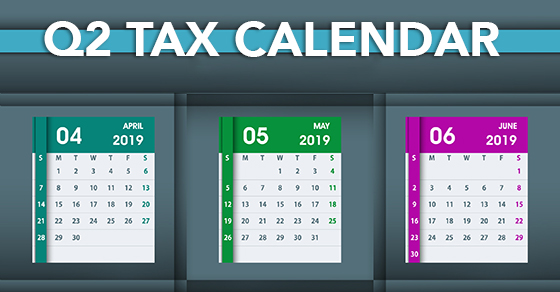Tacking vacation days onto a deductible business trip.
Can I Add Personal Days to a Business Trip and Deduct My Travel Expenses?

Posted by Lisa Albritton on Apr 24, 2019
Posted in Business Tax
How Entrepreneurs Must Treat Expenses on Their Tax Returns

Posted by Lesley L. Price, CPA on Apr 23, 2019
Have you recently started a new business? Or are you contemplating starting one? Launching a new venture is a hectic, exciting time. And as you know, before you even open the doors, you generally have to spend a lot of money. You may have to train workers and pay for rent, utilities, marketing and more.
Posted in Business Tax
Deducting Business Meal Expenses Under Today's Tax Rules

Posted by Marty Williams, CPA on Apr 22, 2019
In the course of operating your business, you probably spend time and money “wining and dining” current or potential customers, vendors, and employees. What can you deduct on your tax return for these expenses? The rules changed under the Tax Cuts and Jobs Act (TCJA), but you can still claim some valuable write-offs.
Posted in Business Tax
Divorcing Business Owners Need to Pay Attention to Tax Implications

Posted by Nick Wheeler, CPA on Apr 18, 2019
If you’re getting a divorce, you know it’s a highly stressful time. But if you’re a business owner, tax issues can complicate matters even more. Your business ownership interest is one of your biggest personal assets and your marital property will include all or part of it.
Posted in Business Tax
Financial statements present a company’s financial position as of a specific date, typically the end of the year or quarter. But sometimes events happen shortly after the end of the period that have financial implications for the prior period or for the future. Here’s a look at what’s reportable and what’s not.
Posted in Business Tax
2019 Q2 Tax Calendar: Key Deadlines for Businesses and Other Employers

Posted by Jessica L. Pagan, CPA on Mar 26, 2019
Here are some of the key tax-related deadlines that apply to businesses and other employers during the second quarter of 2019. Keep in mind that this list isn’t all-inclusive, so there may be additional deadlines that apply to you. Contact us to ensure you’re meeting all applicable deadlines and to learn more about the filing requirements.
Posted in Business Tax
Could Your Business Benefit from the Tax Credit for Family and Medical Leave?

Posted by Jessica L. Pagan, CPA on Mar 19, 2019
The Tax Cuts and Jobs Act created a new federal tax credit for employers that provide qualified paid family and medical leave to their employees. It’s subject to numerous rules and restrictions and the credit is only available for two tax years — those beginning between January 1, 2018, and December 31, 2019. However, it may be worthwhile for some businesses.
Posted in Business Tax
There's Still Time for Small Business Owners to Setup a SEP Retirement Plan for Last Year

Posted by Michael D. Machen, CPA, CVA on Mar 12, 2019
If you own a business and don’t have a tax-advantaged retirement plan, it’s not too late to establish one and reduce your 2018 tax bill. A Simplified Employee Pension (SEP) can still be set up for 2018, and you can make contributions to it that you can deduct on your 2018 income tax return.
Posted in Business Tax
Does It Still Make Sense for Employers to Reimburse Employees' Moving Expenses?

Posted by Lesley L. Price, CPA on Mar 05, 2019
Some employers reimburse new hires for moving expenses when they relocate. Others reimburse existing employees whose jobs are moved to other locations. Maybe you do both. Now that there’s no tax deduction for moving expenses incurred by individuals, and no more tax-free treatment for employer moving-expense reimbursements, you might wonder: Does it still make sense to reimburse employees for moving expenses?
Posted in Business Tax
The accounting rules for reporting stock compensation have been expanded. They now include share-based payments to nonemployees for providing goods and services, under recent guidance issued by the Financial Accounting Standards Board (FASB).
Posted in Business Tax

















